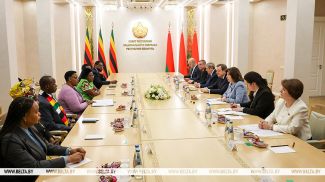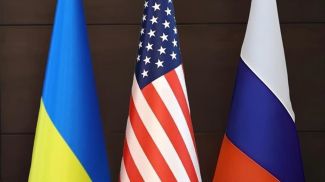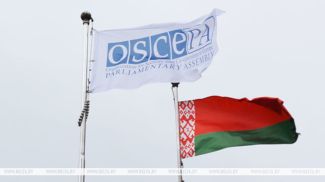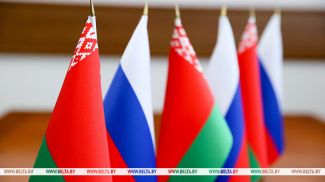“Belarus has kept in regular touch with the secretariats of international organizations based in Geneva, especially in recent weeks and days amid the escalation of the situation on the border. We work with the secretariats, on an expert level, providing them with relevant information. In recent days, the dialogue has been raised to a high level,” the diplomat said. Yuri Ambrazevich said that he had already had a number of meetings and is scheduled to meet with the heads of international organizations in the coming days.
“We had meetings with the UN High Commissioner for Refugees, the High Commissioner for Human Rights, the head of the Secretariat of the International Federation of Red Cross Societies, the head of the regional office of UNICEF in Geneva. Tomorrow there will be a meeting with the director general of the International Organization for Migration. A meeting with the president of the International Committee of the Red Cross is scheduled for next Monday,” Yuri Ambrazevich said.
According to him, such meetings help Belarus to communicate its position to the international organizations. “During my recent meetings I conveyed a political message from Minister of Foreign Affairs Vladimir Makei to these organizations and their leaders. “The leadership of the secretariat of international organizations does not accuse Belarus of violating any norms of international law and our national legislation,” Yuri Ambrazevich said.
According to him, in recent years Belarus has always drawn the attention of the international community to the root causes of the huge number of refugees seeking to reach Europe. As of November 2021, there were 84 million displaced people in the world, including 26.5 million refugees. The main regions which people are fleeing are Asia and Africa. The most acute phase of migration began in 2015 when Syria faced another armed conflict, the Belarusian permanent representative said. This set off a well-known migration crisis in the European region. Germany alone has taken in more than a million refugees since 2015. These events caused a rift in relations between the EU states: not all of them agreed to accept migrants and grant them refugee status.
“Amid the current violations of international law on refugees and the right to asylum by Poland, Lithuania and Latvia, other EU states continue to accept hundreds and even thousands of refugees on a daily basis. Therefore, the position of the European Commission, when, on the one hand, they call for compliance with international obligations regarding refugees, and, on the other, express solidarity with Poland, Lithuania, Latvia, is duplicitous at the very least,” said Yuri Ambrazevich.













